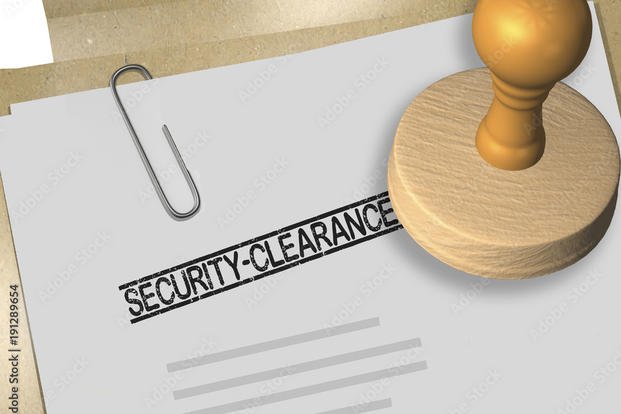In spite of what almost everyone will tell you, it will not be the end of the world if you don't keep your security clearance when you transition into the civilian workforce. There are certainly reasons to maintain your security clearance, but they do not apply to every clearance-holding veteran.
But how can that be? You've likely been told that employers are going to want to hire you, because they can save money if you have a security clearance, or that employers are searching for active clearance-holders. Listen to all of this advice if you hope to stay in your sector, or know you have a job in mind that requires a clearance, but don't freak out if your clearance lapses. From what I've seen, if an employer really wants to bring you onboard, they will hire you.
Related: Search for Security Clearance jobs.
When to Keep Your Security Clearance
There are certainly circumstances when you want to keep your security clearance active and your options open. This is especially true if you plan on working in specific jobs in the government or in certain government contractor positions.
Federal agencies often accept another agency's investigation as the basis for granting a security clearance, as the Military.com article U.S. Department of State: Security Clearance FAQ describes. This is based on reciprocity, which applies to employees of the federal government, military and contractors, as long as the investigation meets the scope and standards required for the new position.
The details are laid out in DoD 5200.2-R for Defense Department employees, and DoD 5220.22-M for DoD contractors, but the basic requirements state that the date of the last investigation must fall within the required timeline, the clearance must not have been granted on an interim or temporary basis, and military service must not have had a break of longer than 24 months.
Related: Does your resume pass the 6-second test? Get a FREE assessment.
The same is true of private-sector jobs. If you are looking at jobs that contract with the government or military and require a clearance, then it is a good idea to hope you have an active clearance when you leave the military. Clearances are granted to such persons as "expert or consultant to an agency, an industrial or commercial contractor, licensee, certificate holder, or grantee of an agency, including all subcontractors," per Executive Order 12968, Access to Classified Information. So if this is the direction you see yourself going after the military, you will likely want to stay on top of your security clearance.
Focus on the Career You Actually Want
Not all post-military careers require a security clearance, and just because you held a position in the military that required a clearance doesn't mean you have to continue that trajectory. Many of you may realize that you want to change your careers after the military.
This was, eventually, the case with me. I went to work in the U.S. government doing post-conflict reconstruction and stabilization, and managed to get a security clearance, but then realized my calling was to be a writer. That journey took me to Telltale Games -- a video-game developer -- and now here at Military.com, and naturally my security clearance was not necessary (though the fact that I once had a security clearance may have helped in the employers' ability to judge my credibility). I could have saved myself some time and the taxpayers some money if I had pursued this career path earlier. However, I was not certain where my career would go, so I wanted to make sure I was prepared for every option.
Related: Unleash your career potential and get customized job recommendations based on your military experience and personality traits.
This is not uncommon. When I was in the Marine Corps, I worked as one of the people who interviewed other Marines (and some individuals from other branches of the military) for their security clearances. I recall at least one person admitting he wanted his clearance renewed so that, if he decided to exit the military when his enlistment term ended, he would have better chances at landing a job. Instead, you may want to consider finding your passion while you are still in the military, and pursue that career path with dedication and passion, instead of going with the scattershot approach to the job search.
If you love what you are or were doing in the military, then by all means pursue similar work as a contractor or in some facet of the government that requires a security clearance. However, if you are unsure about your next steps, don't worry about it. If a government agency or company wants you badly enough, they will work with you to get your security clearance. It can certainly help to maintain your security clearance, but if you discover your career aspirations early enough and decide to attend art school to study painting, for example, there is no reason to use additional resources or taxpayer money.
Related: For the latest veteran jobs postings around the country, visit the Military.com Job Search section.
The Next Step: Find the Right Veteran Job
Whether you want to polish up your resume, find veteran job fairs in your area, or connect with employers looking to hire veterans, Military.com can help. Sign up for a free Military.com membership to have job postings, guides and advice, and more delivered directly to your inbox.











